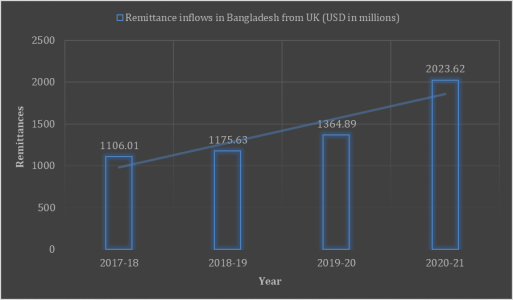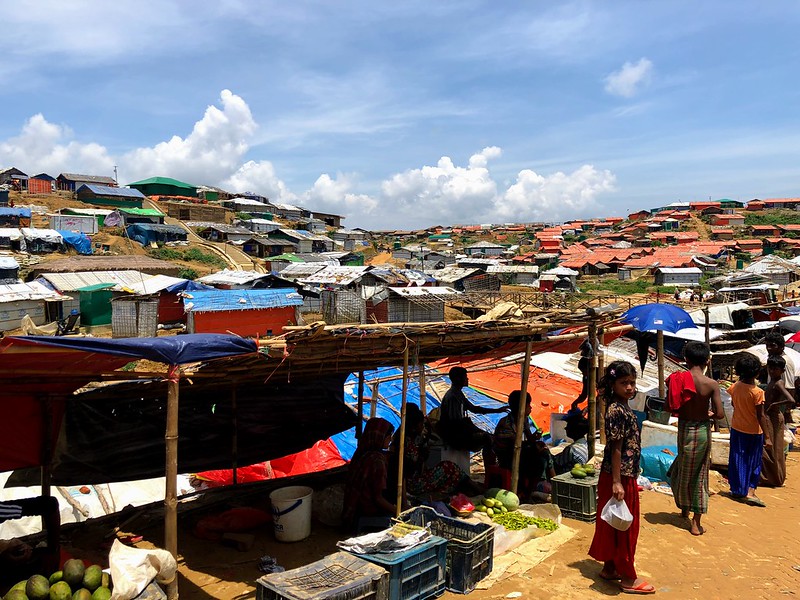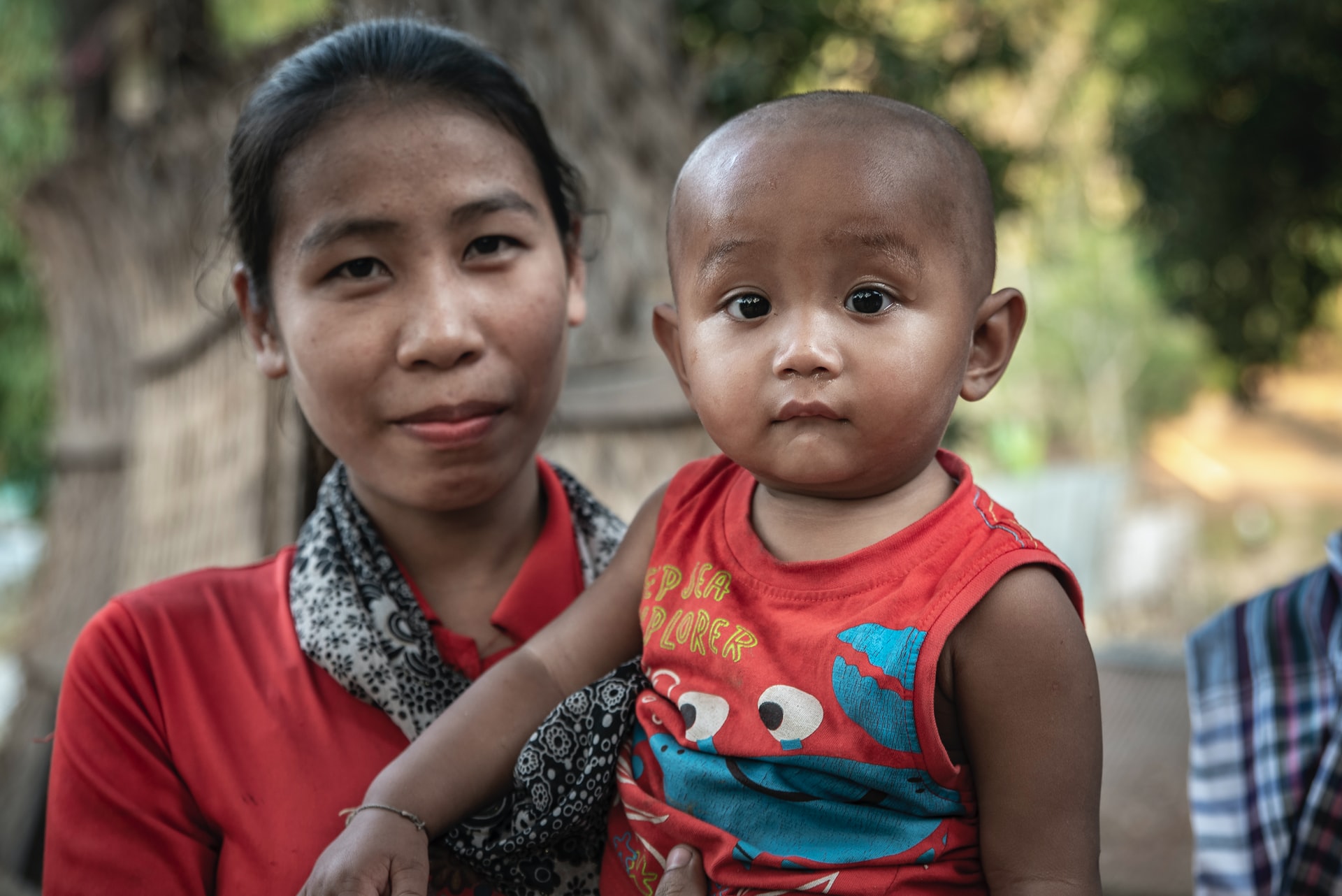Geopolitics in the Indo-Pacific region has been heating up. The traditional Sino-Indian rivalry for influence has been growing more aggressive while the formation of the AUKUS alliance in September 2021 shows renewed interest in the region from the UK and the USA. After a decade of remarkable economic growth, a more confident Bangladesh has recently been adopting a more outward-facing foreign-policy posture, looking to ensure its own security and prosperity in the midst of big-power manoeuvres. Against this background, Shaikh Abdur Rahman looks at 50 years of bilateral ties between the UK and Bangladesh to argue that a deepening of the relationship is both possible and desirable for the two countries.
The United Kingdom was among the first European countries that recognised Bangladesh as an independent state. The recognition on 4 February 1972 influenced other Commonwealth and Western countries in recognising Bangladesh. Since then, the two countries have enjoyed warm bilateral relations; but, since 2017, these have seen a particular strengthening with the first ever Bangladesh–UK Strategic Dialogue held in Dhaka on 28 March that year.
Bangladesh–UK bilateral relations cover a large area ranging from defence and security to trade to human security issues. The geostrategic importance of Bangladesh in the Bay of Bengal along with its speedy economic growth over the past decade makes it an important partner in maintaining shared peace, security and prosperity in South Asia. Against this backdrop, it is important to assess the achievements and new avenues for harnessing further potential of “Brit Bangla Bondhon“.
Strategic and Defence Cooperation
In March 2022, Bangladesh and the UK will hold the first ever defence dialogue as the two countries seek to take the bilateral relationship to a strategic level. The High Commissioner of Bangladesh in London, Saida Muna Tasneem, confirmed this during the 50th Armed Forces Day event. During Prime Minister Sheikh Hasina’s visit to London in November last year, the issue of defence purchase was discussed. UK–Bangladesh defence cooperation will help in implementing the Forces Goals 2030.
Bangladesh has decided to buy five naval ships from the UK to protect its long sea frontier at the Bay of Bengal. The decision substantiates the strategic move of the country in diversifying its defence purchase from Asian countries to Western. During the 3rd Bangladesh–UK strategic dialogue in 2019, UK officially expressed its ‘readiness’ to help Bangladesh Air Force obtain higher calibre multi-role combat aircraft from Europe, and to strengthening aviation security especially in the Hazrat Shahjalal International Airport through “sharing of best practices, training and capacity building”.
UK also trains a good number of Bangladeshi armed forces personnel every year at the Sandhurst Royal Military Academy, Royal College of Defence Studies and at the Joint Defence Command Staff courses. UK has also provided significant military and advisory assistance in setting up the prestigious Defence Services Command and Staff College and the National Defence College (NDC) of Bangladesh. The British Military Assistance Team had been in Bangladesh as instructors for many years and the Bangladesh Navy (BN) and Royal Navy cooperate in increasing the BN’s capability.
There is further scope, however, for cooperation in the counter-terrorism aspects which needs collective measures. Both the countries have faced critical terrorist attacks in the past. Experience sharing, technical and logistic support, and training and collaboration in finding the root causes are the areas where the two countries need to increase their engagement.
Trade and Investment
UK is the second largest foreign investor in Bangladesh. As of March 2020, UK-based companies have invested around US $2.45 billion and there are more than 200 British companies in Bangladesh. In addition, UK is the third single largest market destination for Bangladesh after the United States and Germany. In 2021, Bangladesh exported goods worth £2.4 billion to the country and at the same time, it imported goods worth £585 million.
Bangladesh is also the second largest recipient of UK’s development assistance after India. Since independence, total UK assistance to Bangladesh has crossed £3 billion. The UK has been providing duty-free export facilities to the country as it is a UN Least Developed Country (LDC). However, the graduation of Bangladesh from the LDC status by 2026 poses a number of challenges to the steadily growing economy. For instance, Bangladesh will no longer be eligible for the Official Development Assistance (ODA) from developed countries including UK. So, it is time to rethink their future economic partnership.
In the latest Strategic Dialogue, UK reiterated its commitment to continue providing duty-free, quota-free access to the UK market until 2029. However, the potential for specific preferences like free trade agreement (FTA) or preferential trading agreement (PTA) needs to be considered to continue the robustness of the bilateral trade and investment. Besides, for the development transition, a huge amount of investment opportunities have been created in the areas of infrastructural development, technological support and hundreds of economic zones, but Bangladesh has to ensure a smooth investment environment to harness the full potential of investment opportunities from UK.
Expatriate Bangladeshi Community
Due to the former colonial ties and cheap foreign labour sources, the United Kingdom is the largest Bangladeshi population hub in the Western World. The diaspora, which is now around 0.6 million, remains a key link in the growing political, economic and cultural relations. Currently, there are around 100 British-Bangladeshi councillors and 4 Members of Parliament (MPs) in the UK. The community operates over 10,000 Bangladeshi restaurants, worth a yearly turnover of £4.5 billion.
For Bangladesh, UK has been one of the top sources of remittance. In the last fiscal year 2020–21, UK was the 4th largest source of remittance amounting to US $2023.62 million (Figure 1).

Figure: Remittance inflows in Bangladesh from UK, 2017 – 2021 in USD millions (Source: data from Bangladesh Bank)
The people-to-people contact has grown too with Baisakhi Mela – a Bangladeshi cultural event – in London becoming the largest open-air Asian festival in Europe. Bangladeshi students regularly arrive in the UK for higher studies and there have been numerous collaborative knowledge transfer programmes between the university faculties and researchers of the two countries.
Human Security Issues
Despite cooperation, this remains a difficult area. Bangladesh is host to 1.2 million Rohingya refugees since 2017. With the deteriorating political situation in Myanmar, the hope for their safe and dignified return has been shrinking. The UK government has been active in raising and coordinating the issue in the UN Security Council and creating pressure on Myanmar. Both the countries need to work with the international community, including ASEAN and the UN to resolve the protracted crisis. However, UK has ‘catastrophically‘ abridged the funding for Rohingyas to £27.6 million in 2021 compared to £129 million in 2017 (Figure 2) which needs to be reconsidered.

Figure: UK’s aid allocation for the Rohingya refugee camps in Bangladesh since 2017 (Source: data from Dhaka Tribune)
Being one of the most climate vulnerable countries, Bangladesh is a global leader in climate adaptation and resilience and UK has actively aided in this process. Between 2008 and 2020, UK helped to install 249 solar irrigation pumps serving 6,062 farmers and has protected 40,000 hectares of cultivable land from flooding. Around 27 million people in Bangladesh gain access to early warning systems for floods and cyclones with the help of UK funding. Furthermore, UK is an essential partner in achieving the SDG goals and the delta plan-2100. In the 4th Strategic Dialogue, both countries reiterated their commitment to climate action.
Challenges that Need Addressing
If, however, Bangladesh is to reap full benefits of its new geostrategic importance for greater security and prosperity, hurdles like tariff and non-tariff barriers, corruption, low ranking in ease of doing business, and bureaucratic burden must be tackled. To avoid the “middle-income trap” and achieve smooth LDC graduation by 2026, Bangladesh needs the UK as an important partner. On UK’s part, reducing funds for the Rohingyas questions their commitment to the world’s most persecuted refugees. Having recognised Bangladesh as a ‘critical stability provider’ in the Indo-Pacific, UK needs to support Bangladesh in that role vigorously. Both parties, therefore, need to be earnest in addressing the challenges of their bilateral relations.
Banner Image: Photo by Alin Andersen on Unsplash.
The views expressed here are those of the author and not of the ‘South Asia @ LSE’ blog, the LSE South Asia Centre, or the London School of Economics and Political Science.







